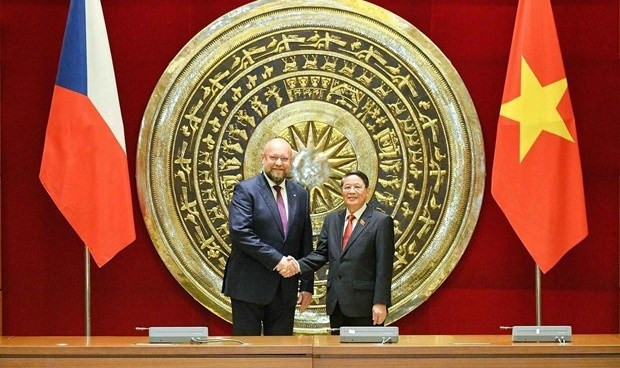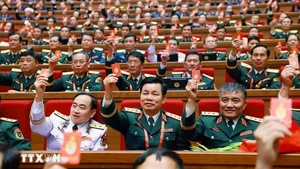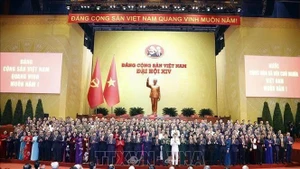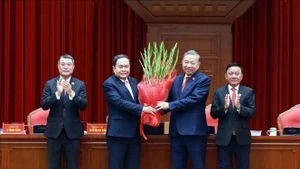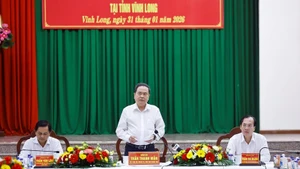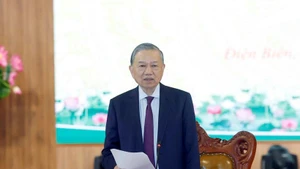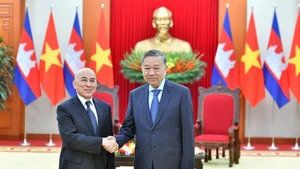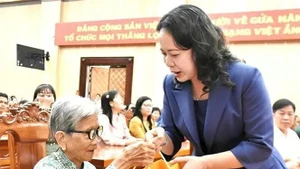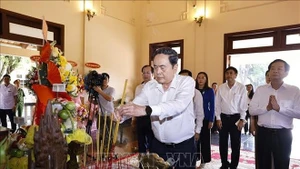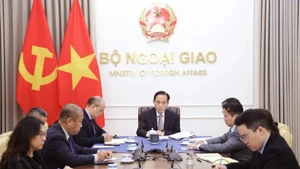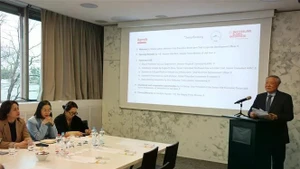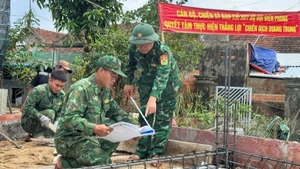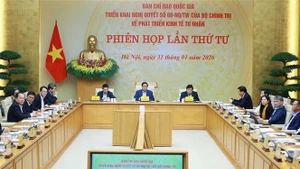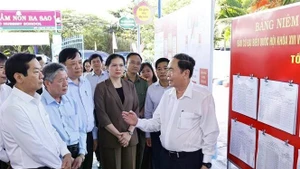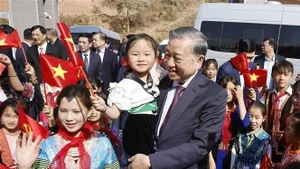Welcoming the Czech delegation, Hai affirmed that Vietnam attaches importance to the friendship and multifaceted cooperation with traditional friends, with the Czech Republic being a priority partner.
Bartosek stated the Czech Republic treasures the time-tested friendship between the two countries, views Vietnam as the most important partner in Southeast Asia, and hopes to promote bilateral cooperation in multiple spheres.
The two sides expressed their delight at the progress in their countries’ relations over the past years as seen in cooperation and delegation exchanges in many fields and at levels, especially the visit to Vietnam by Czech Prime Minister Petr Fiala from April 20 to 22, 2023, helping strengthen the mutual trust and understanding between the two countries’ leaders and people.
They applauded the results of cooperation in such fields as economy - trade, science, education - training, and culture.
Vice Chairman Hai called on both countries to maximise advantages created by the EU - Vietnam Free Trade Agreement (EVFTA) and actively carry out the outcomes of the Inter-governmental Committee’s meeting held in the Prague in late June 2022 to bolster bilateral trade and investment.
He asked Bartosek and other members of the Chamber of Deputies to continue supporting the Vietnam - EU relations in all aspects, especially hastening other EU members’ ratification of the EU - Vietnam Investment Protection Agreement (EVIPA) and the European Commission’s early removal of the “yellow card” warning against IUU fishing for Vietnam.
For his part, Vice Chairman Bartosek stressed that Vietnam is a potential economic partner, and more and more Czech enterprises are planning to expand operations in the Southeast Asian nation.
During the visit, his delegation will work with the Vietnamese Ministry of Agriculture and Rural Development to discuss agricultural cooperation, he noted, proposing authorities of Vietnam create favourable conditions for agricultural products of the Czech Republic, including pork, to access the Vietnamese market.
At the talks, Hai appreciated the Czech Republic’s enormous and effective assistance for Vietnam in education and training, suggesting the two countries enhance ties in this regard.
He also thanked the Czech State for creating conditions for the Vietnamese community to become an ethnic minority group and settle down in the country.
Bartosek spoke highly of the role of the Vietnamese community, which was recognised as an ethnic minority group by the Czech Government in 2013 and has actively contributed to local socio-economic development.
The Czech official also suggested the two sides set up cultural centres in each other’s countries soon, open direct air routes, and provide favourable visa conditions to boost investment, tourism, and people-to-people exchanges.
The officials also shared views on regional and international issues of common concern. They affirmed that Vietnam and the Czech Republic will maintain close coordination and mutual support at international forums and organisations, including the United Nations and the Asia - Europe Meeting (ASEM), and in promoting ASEAN’s relations with the Czech Republic and the EU.
With regard to the East Sea/South China Sea issue, they reaffirmed the support for the peaceful settlement of disputes in accordance with international law, particularly the 1982 UN Convention on the Law of the Sea (UNCLOS).
Talking about parliamentary cooperation, they agreed to maintain mutual visits between parliamentary leaders, committees, and agencies; increase sharing experience in and information about legislative activities; and coordinate to monitor the implementation of cooperation agreements and key projects between the two countries.
Hai and Bartosek highly valued the dynamism of the two parliamentary friendship groups, asking them to augment efforts to contribute more to bilateral cooperation.
They also pledged to keep coordination at multilateral forums such as the Inter-Parliamentary Union (IPU) and the Asia - Europe Parliamentary Partnership (ASEP) meetings. The two legislative bodies will also step up viewpoint exchange and mutual support in issues of shared concern.
